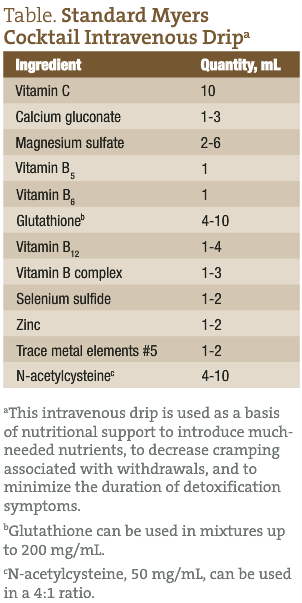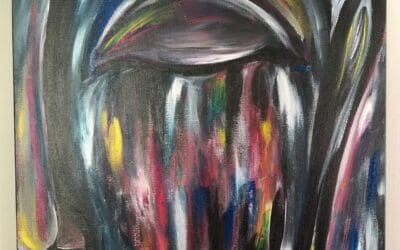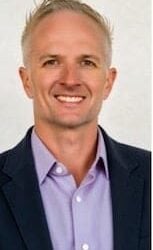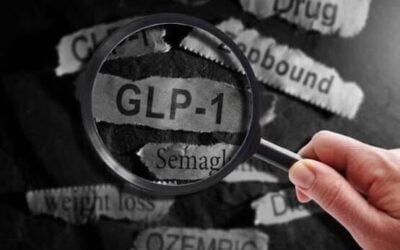Holistic Treatment for Drug and Alcohol Addiction and Recovery
Turshá Hamilton, NMD
It has become increasingly evident that drug and alcohol use and addiction are problems that are on the rise in this country. Whether it is being used to escape one’s day-to-day life or whether it is owing to peer pressure among youth or because it is being used to self-medicate, drug and alcohol use is plaguing everyone from the very young to elders.
There are many treatment methods available for addiction, but few of them focus on the whole person—body, mind, and spirit. I believe that treating a person’s whole self provides the best opportunity for long-term recovery because it tends toward finding the root of the imbalance, while giving him or her a more stable foundation. This foundation is something that can then continue to be built on, while the body, mind, and spirit continue to heal and grow stronger.
The methods presented in this article are best used as intensive treatment in an inpatient setting that removes the patient from the everyday distractions, triggers, and temptations of his or her life. The sole focus can then be health, safety, and recovery. However, these methods can also work in an outpatient setting. It will be important for the practitioner to set guidelines for patients so that there can be a clear understanding of what is expected of them, when they are to return for treatment, what their other duties or expectations are, and so forth.
Some basic ideas about how to encourage mind and spirit therapies will be presented, although the main focus will be on the body, with the understanding that getting the body in a more stable and sound condition allows a person better mental functioning, rational thought, clearer cognition, spiritual awareness, and more resources with which to go through all these processes. It also helps patients become more open to finding their higher power or to reconnecting with the power that they once knew.
The Body and Nutritional Recovery
The basis of recovery should be a nutritional biochemical one. We know that the body needs many different nutrients to function optimally on a daily basis, but we need even more resources as the body eliminates toxins and continues to try to function. It is also important to remember that the body of the person with addiction is not being fed prop erly, especially in the case of greater or stronger addictions. Food becomes irrelevant and even undesirable to the person as the addiction grows, so it is not uncommon to see patients with low levels of scurvy, Wernicke-Korsakoff syndrome, symptoms of beriberi, and acute or chronic magnesium deficiency along with dehydration.
erly, especially in the case of greater or stronger addictions. Food becomes irrelevant and even undesirable to the person as the addiction grows, so it is not uncommon to see patients with low levels of scurvy, Wernicke-Korsakoff syndrome, symptoms of beriberi, and acute or chronic magnesium deficiency along with dehydration.
Firstline therapy tends to be intravenous nutrition. The following 2 intravenous drips can be used for most acute patients: modified Myers cocktail or modified lactated Ringers solution.
The standard Myers cocktail uses a mixture of magnesium sulfate, calcium gluconate, dexpanthenol, pyridoxine hydrochloride, cobalimin, vitamin B complex, and vitamin C. This cocktail can be enhanced with the use of ingredients such as zinc, selenium sulfide, trace minerals, folic acid, N-acetylcysteine, and glutathione. These ingredients can be mixed in a 250-mL sterile water bag and allowed to drip over a 30-minute to 1-hour period. The injectables mentioned are all standard concentrations unless otherwise noted. The amounts of each ingredient should be tailored to the individual patient’s symptoms, but a good starting point for the bag is given in the Table.
A basic lactated Ringers protocol can be used acutely for treatment of dehydration or for replenishment in the patient who has vomiting and diarrhea. Starting with a 250-mL lactated Ringers bag infused over a period of 30 to 60 minutes, you can add the following: magnesium sulfate (2-6 mL), calcium gluconate (1-3 mL), and vitamin B12 (1-2 mL).
A few specific indications include the following: Vitamin B complex is indicated for Wernicke-Korsakoff syndrome and beriberi symptoms. Vitamin B12 is indicated for fatigue, congestive heart failure, anemia, and other conditions. Vitamin C is indicated for easy bruising, gum disease, decreased immune function, adrenal fatigue or deficiency, and other disorders. Magnesium sulfate is indicated for restless leg syndrome, muscle cramping, anxiety, headache, vomiting or diarrhea, and longer duration of drug or alcohol use. Glutathione is indicated for any drug or alcohol use, detoxification, liver dysfunction, decreased brain cognition, and other conditions. Glutathione can be depleted through toxic metabolite overproduction or through malnutrition. Selenium sulfide helps synthesize glutathione, keeps glutathione in its reduced form, enhances immune function, and so forth. N-acetylcysteine supports synthesis of glutathione and is mucolytic (thins mucous secretions in the liver).
Additional Nutrient Therapies
Oral Amino Acid Therapy
The building blocks of neurotransmitters are amino acids. To balance a patient’s brain chemistry and gastrointestinal chemistry, there must be amino acid therapy focused on this goal. Many drug therapies used are focused on one neurotransmitter alone (eg, monoamine oxidase inhibitors, selective serotonin reuptake inhibitors, etc). What seems to elude the allopathic medical community is that this method will deplete the target neurotransmitter and pull the person more out of balance. According to Dr David Arneson, if you truly want to balance and replenish the neurotransmitters, then you must support the entire biochemical pathway on both sides, not just focus efforts on one end product. A preformulated amino acid combination given twice a day can be a good start.
Protein Powder
Protein powder can be especially good for those who have nausea, vomiting, or diarrhea or for patients who have very little appetite. It increases caloric intake and helps build muscle. Choosing a powder that has highly absorbable amino acids will be even more beneficial.
Mucuna prurens
Mucuna prurens (600 mg) may be given twice daily. This tropical legume provides levodopa and nutrient precursors and supporters to build and stabilize levodopa production.
Other Naturopathic Therapies to Consider
Infrared Sauna
Infrared sauna (10-60 minutes) up to 3 to 5 days a week may be helpful. It helps support detoxification and increases clearance of toxic metabolites.
Exercise
Exercise (20-60 minutes a day) 3 to 7 days a week is also helpful. It increases peripheral blood flow, which improves nutrient intake and metabolite elimination from cells.
Acupuncture
Acupuncture may be prescribed as needed. It has been found beneficial for many concerns, such as gastrointestinal upset, anxiety, restless leg syndrome, and nausea, vomiting, or diarrhea.
Hydrotherapy
Constitutional hydrotherapy will increase detoxification, move the body to a parasympathetic state, enhance blood flow, stimulate organs, and so forth. Wet socks therapy will improve sleep, boost immune function, and place the patient in a parasympathetic state. Wet sheet therapy can be used for mania (wrap the patient for approximately 1 hour) or for detoxification (wrap the patient until dry).
Botanicals
Botanicals that are adaptogenic, immune modulating, hepatotonic, nervous system tonifying, and alterative should be included in the total healing and detoxification regimen. They can be given in the form of capsules, tea, or tincture. (If by tincture, remember to use glycerites so as not to stress an already stressed liver by using alcohol; also, you do not want to sabotage anyone’s recovery.) Although there are many to choose from, some herbs to consider are the following: ashwaganda, astragalus, Schizandra, Eleuthrococcus, Althea, Ulmus, vervain, Glycirrhiza, curcumin, and Passiflora.
Mind and Spirit Therapies to Consider
Remember that the mind and spirit have a part in the person’s addiction and that they will be a factor in the recovery process. Part of recovery is to help a patient come to the realization that he or she cannot do it alone. There is a lot of work that needs to be done, and it is seldom that a person has all the answers within the self. Some therapies to consider include the following.
- 12-Step programs: Such programs allow connection with others who have similar struggles in recovery. They also emphasize connection with a higher power.
- Meditation: This teaches the person with addiction how to calm the mind and focus his or her thoughts.
- Yoga: This therapy teaches the person with addiction how to calm the mind and focus thoughts, while body stretching increases blood flow to assist in detoxification.
- Individual counseling: This gives the patient an avenue to discover and work through personal issues.
- Group counseling: Such counseling helps the patient work through individual issues, while sharing the experience with others.
- Sponsorship: Having a sponsor gives the patient a one-on-one relationship with someone who has gone through recovery, who can offer guidance from a personal experiential perspective.
- Volunteering or community service: Being of service allows the patient to get out of his or her own head for a time. It can also help patients see the problems of others around them so that they have the opportunity to reevaluate the true scope of their issues compared with those of others.
- Journaling: Such therapy helps patients clear their mind so that they have the energy and capacity to focus their thoughts on the important issues of the moment.
In Conclusion
When nutritional therapies are used, acute symptoms of detoxification are generally relieved, or at least reduced, in 5 to 7 days after the last drug or alcohol use. Thereafter, the nutritional therapies can be less intense and may be used for maintenance and support. However, the mind-body therapies should be increased as a person’s detoxification symptoms improve and his or her mental cognition increases.
I believe that these therapies will be great assets in holistic treatment of addiction. By providing a well-rounded foundation on which to heal and by discovering what led to their addiction in the first place and working through it, patients are better equipped to lead a more fulfilling life of recovery and purpose.
 Turshá Hamilton, NMD is licensed in the State of Arizona. She graduated from Southwest College of Naturopathic Medicine and currently has offices in Sun City (Total Wellness Medical Center) and Phoenix (True Vitality Naturopathic Medical Care). Dr. Hamilton is adjunct faculty at Kaplan University and Grand Canyon University.
Turshá Hamilton, NMD is licensed in the State of Arizona. She graduated from Southwest College of Naturopathic Medicine and currently has offices in Sun City (Total Wellness Medical Center) and Phoenix (True Vitality Naturopathic Medical Care). Dr. Hamilton is adjunct faculty at Kaplan University and Grand Canyon University.






















